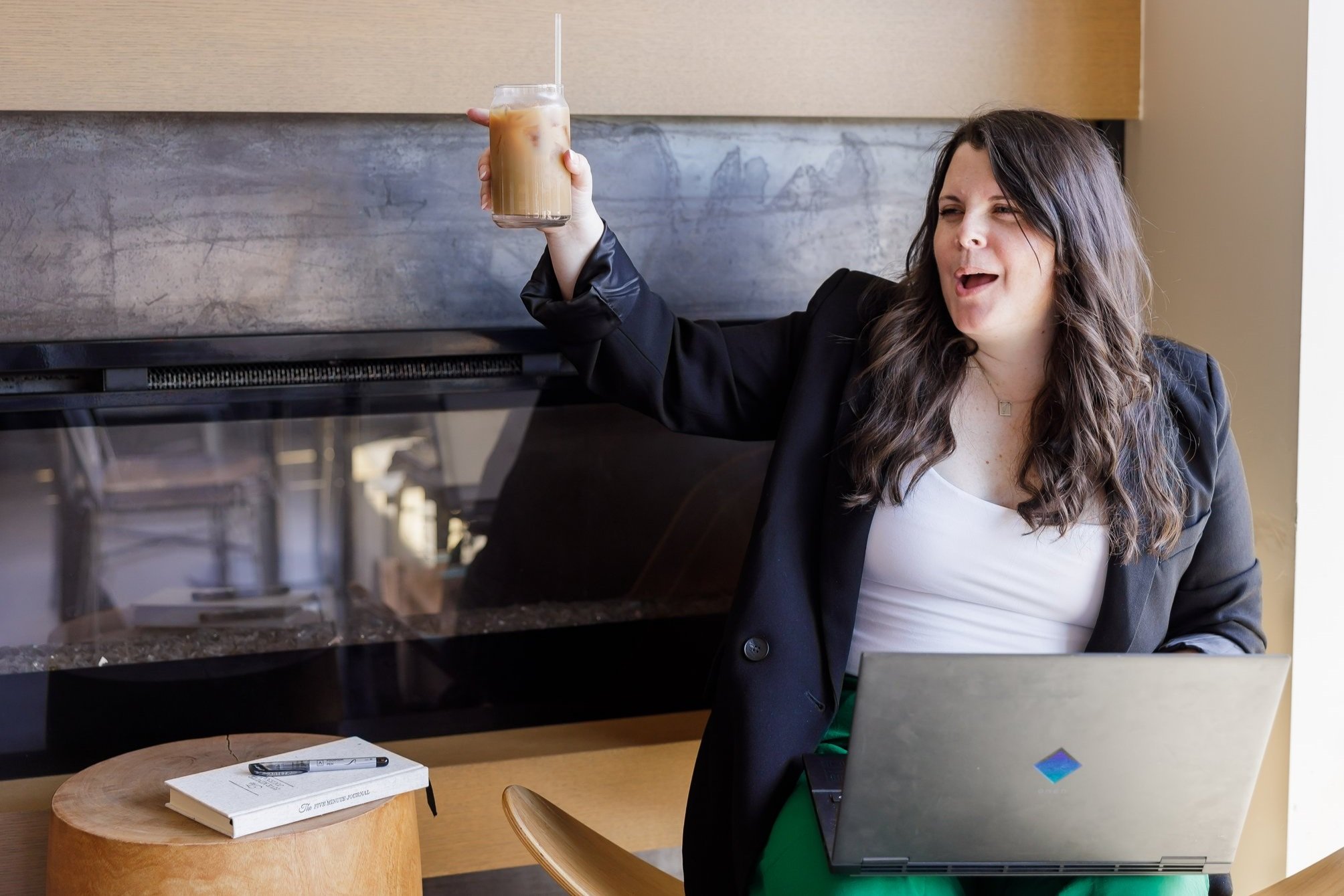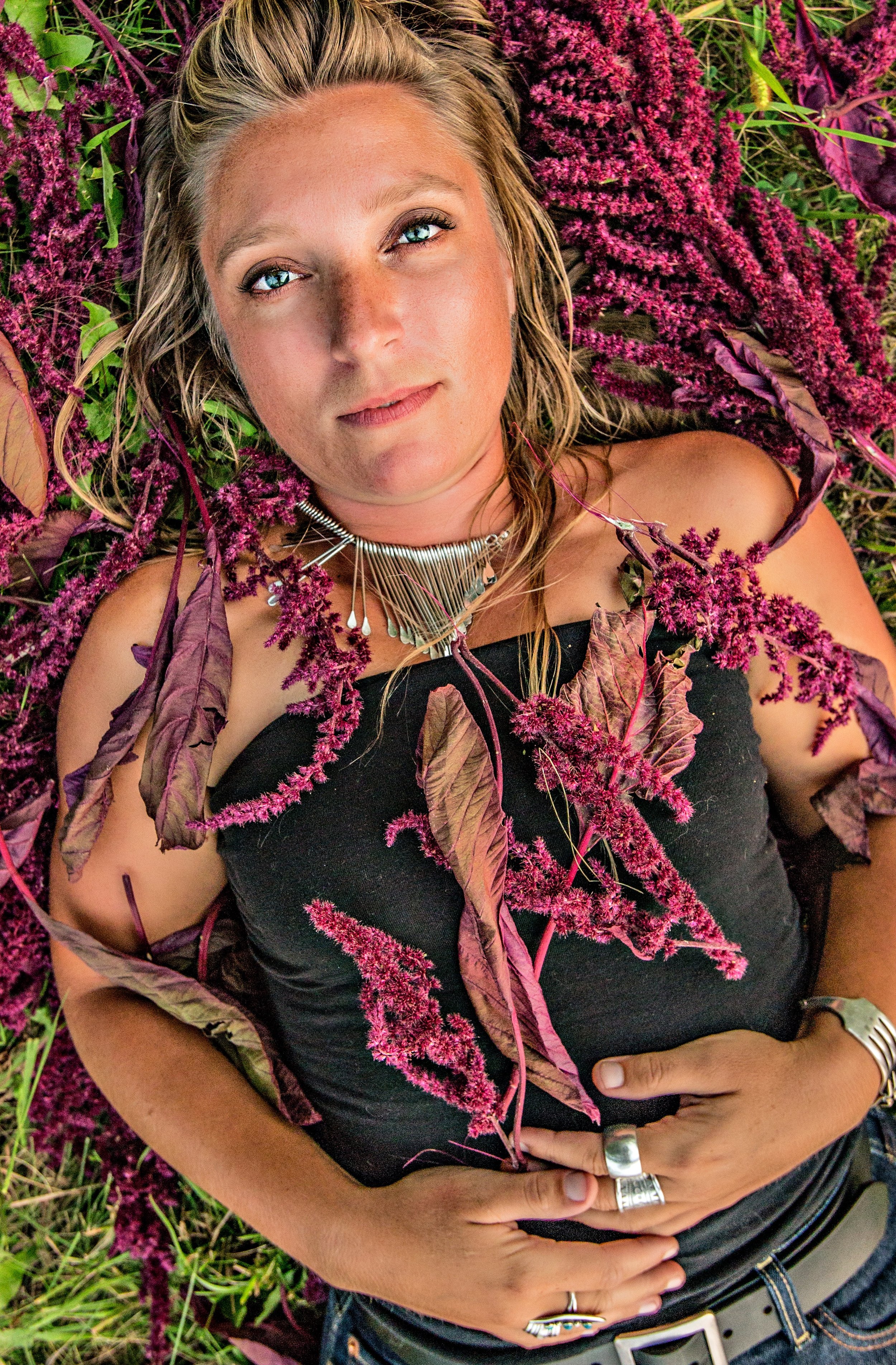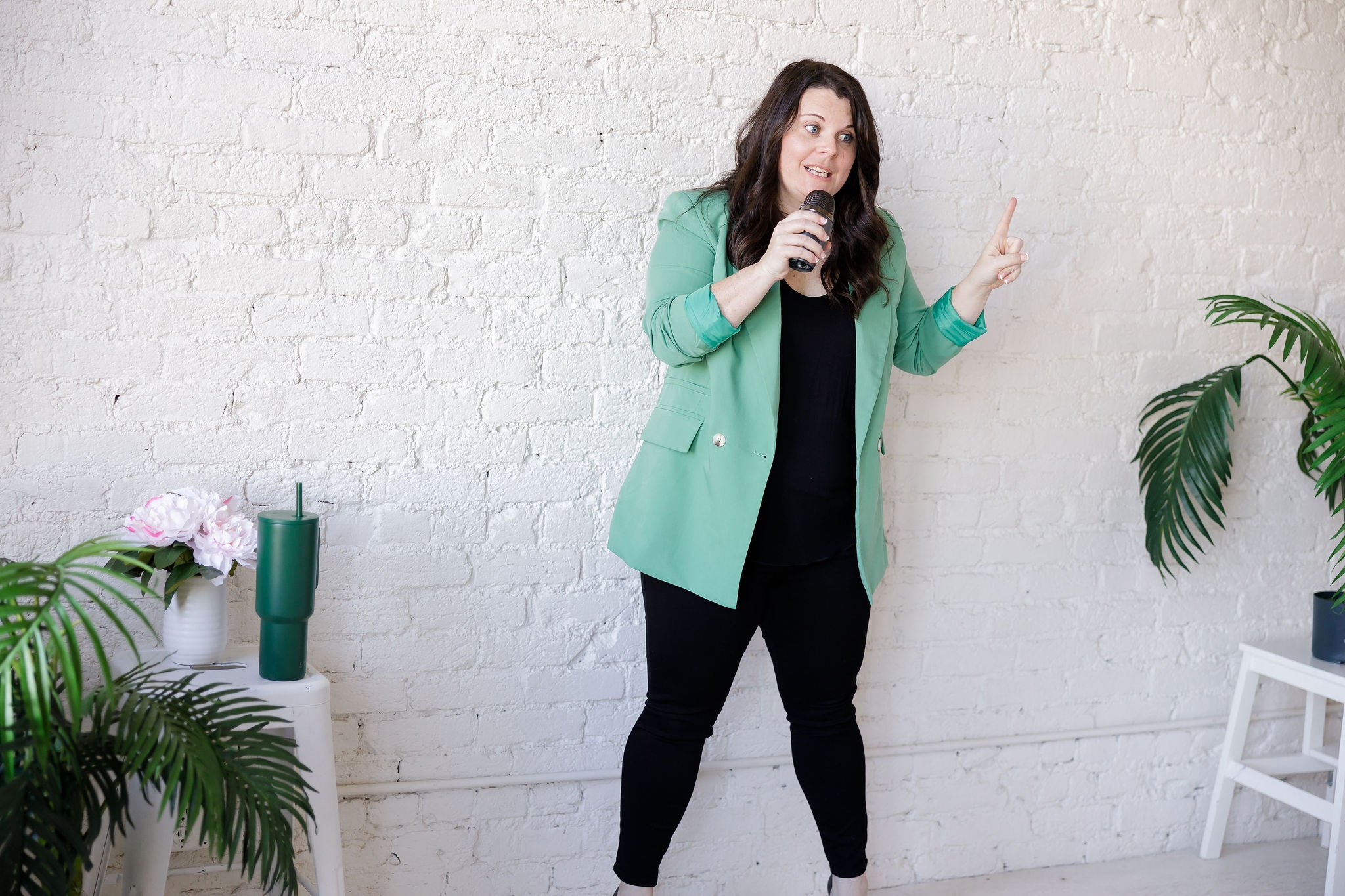109 - Why you SHOULD NOT Feel Bad About Saying NO
Listen on Apple Podcasts / Listen on Spotify
Summary
In this episode, I wanted to share an aha moment I had about setting boundaries and saying no. For so many of us, the fear of saying no is about the consequences, such as losing clients or damaging your reputation. Today, I’ll be sharing a personal experience of overcommitting and realizing my mistake, how I recovered, and what it taught me about boundary setting! Enjoy!
Takeaways
Setting boundaries and saying no is important for avoiding burnout.
Fear of saying no often stems from the fear of losing clients or damaging one's reputation.
It's important to find a mutually agreed-upon time when scheduling appointments or events.
Saying no doesn't mean missing out on other opportunities.
Chapters
00:00 Introduction
00:43 Aha moment
03:03 Overcommitting
04:02 Realizing the mistake
05:16 The outcome of saying no
06:21 Starting with the most convenient time
07:17 Checking the impulse to say yes
08:17 Finding a mutually agreed upon time
09:11 Caveats to saying no
09:39 Not feeling bad about saying no
10:58 Conclusion
Resources
Check out the Burnout-Proof Members Club for support in building your shut-down routine!
Do you have anything to add?
Drop a comment below…
RELATED POSTS:
TRANSCRIPT:
Ellyn Schinke (00:12.94)
Hello there, Achiever, and welcome back to another episode of the Burnout Proof Podcast, where we're all about helping you build the mindsets, habits, and behaviors to burnout proof your life. My name's Ellen, and if you're a busy, overwhelmed, and Eagram -3 Achiever like I am, who is sick and tired of letting work run your life, you are in the right place, my friend. Here on Burnout Proof, I'm committed to giving you simple, no BS episodes and tips that help you work less, live more, heal from your hustle,
take back your life from burnout. Let's go ahead and do this. I am really excited for today's episode. This was an aha that I had when I was actually... It was between me supporting a friend and former client through a transition she was going through, but simultaneously navigating a really challenging situation in my business. The situation taught me a lot and led to me having a really, really powerful, important aha.
about setting boundaries and saying no. No, I think sometimes when it comes to saying no to someone, not sometimes, I actually think this happens like all the time for an appointment, an event, a meeting, whatever it might be, our fears often that we are either going to piss them off or lose a client or lose our reputation. Like we have a fear of the consequence of potentially pissing this person off, right?
I had this fear too in a recent situation. I'm going to kind of tell you what that situation was. So you actually may have heard me speak about this on Instagram, but we're going to really dive into it today. I had a speaking client that wanted to work with me. I think it was in January. They, early January we met and they wanted to book me for a speaking gig that was going to be at the end of January. Now to give you a little flashback to my January, I think I've talked about this before, but -
remind you. In January, I had a chaotic schedule in January. I'm never going to do this to myself again to start off the year because it was super fun and super exciting, but it was a lot. In January, I had a speaking gig on, I think it was the 18th or something like that, the 17th or the 18th in Spokane, so in Eastern Washington. It was relatively easy for me to get to. I had this
Ellyn Schinke (02:35.788)
three hour workshop that I was giving. And then the next week I was flying to one of my biggest speaking gigs ever. It is my biggest speaking gig ever at the MAFSE, which is a food service industry for food service reps, the MAFSE conference in Palm Springs. So I had Spokane one week, I had this Palm Springs talk the next, and then I had a week off and then I was supposed to go to Denver for my mastermind. So it was of four straight weeks I had three trips.
over those four straight weeks. This person wanted me to, in my off week, come speak to his group. Initially, I said yes, because I had just, in January, gone full -time in my business. I had just said, I had just gone full -time, and I said yes, because I think there was a big part of me that had this straight up scarcity mindset and was really scared that if I said no and if I didn't accommodate them, that I would lose them, that I would lose them as a speaking client.
I was nervous already about my financial situation and going full time, especially as a single entrepreneur. I was nervous about it. So I said yes. And then almost immediately after saying yes, I had this kind of really like icky, like anxious, like resentful feeling about the situation. I realized almost immediately that I shouldn't have said yes and that it would be vastly too much in the span of four weeks.
to do basically three back -to -back -to -back speaking gigs. That would have just been too much. And that I had already put myself on that path the last fall and it had burned me out. And I didn't want to put myself back on that path to start off 2024. So I said yes. And then the next week I came back, they had just gotten approval for funding from their leadership group. And I came back and I was like, look,
really want us to work together, but I can't do that day. In hindsight, I probably shouldn't have said yes in the first place, but I'm realizing now I can't do that day. It's just too much speaking in too short of a period of time. I apologize if this means we can't work together, but I can't do that. I try to be as...
Ellyn Schinke (04:48.78)
professional about it while also taking accountability that I probably shouldn't have said yes in the first place and then giving them some availability. Actually, I don't even think I gave them availability in that. I just said, look, this is the situation. I'm so sorry. I can't do that. And this means we can't work together. That's unfortunate. But unfortunately, this just isn't going to work for me. And again, the fear there, the reason why I said yes in the first place was because of fear, scarcity mindset, fear of losing a client.
fear of how that was going to reflect on me, on my business, how it was going to impact my business. But here's what actually ended up happening. And I think this is an important realization for us to have when we are saying no, when we are saying, you know, putting up boundaries in situations like this, because a no is a boundary, like make no mistake. This person came back, you know, after me being so scared that they were going to be like mad and like, why did I say yes in the first place? This person came back and said,
Yeah, no problem. Totally understand what are some dates that work for you.
And that communication and I sent them dates, we found a date that worked. And actually, as I'm recording this, I am going to speak to them later this week as I'm recording this. So we found a date that worked and this led me to a really, really important aha. When somebody is trying to schedule an appointment, a meeting, an event, et cetera. And you know, there are going to be caveats to this and I'll address those in a second, but when somebody is trying to schedule something with you.
People are always going to start with the most convenient time for them.
Ellyn Schinke (06:27.596)
They're always going to start with the time, the day, the whatever that works best for them. We do it too. You know, it's no shade to those people. When I am, you know, looking at, I'm scheduling a dinner with my friend for later this month. And when I looked at her calendar and her availability, I picked out the weekend that works best for me. We all do it. It's not any shade or shame on anybody. We all do this.
But what we need to remember is they're giving us their most convenient time first. That's the time that works best for them, but it's okay if that's not the time that works best for us. Like when we're scheduling doctor's appointments or sketching meetings for ourselves, we do this too. It totally makes sense. But what we have to learn is to check the impulse to say, yep, I can do it.
out of fear and scarcity and not wanting to lose out. Like it's straight up FOMO. That's why we do this. It's fear of missing out. We need to check the impulse to say, yup, I can do it. Because even if it's inconvenient for us, we need to check that impulse. We need to like, don't do that. If they want to meet with us, if they want to work with us, they're going to be flexible. Like if that frigging doctor doesn't want to lose you as a patient, they're going to find time to make it work.
Like I'm not saying we can't be flexible. We can't be accommodating at times, but I think for so many of us, our first impulse is to do what is inconvenient for us. What doesn't work for us purely for the sake of being convenient for somebody else. And I think that was a huge aha for me is realizing that it's just because the best time for them doesn't work for me. Doesn't mean we're not going to find a mutually agreed upon time.
Like that was the realization I had and the impulse that I needed to check. Like we can say like, sorry, that doesn't work for me. Here are some times that do. And we're not inconveniencing anybody. In fact, if we come back here and say, here are some times that do, and we give them options, it shows that we're trying to make it work. It shows that we are trying to find a mutually good time.
Ellyn Schinke (08:41.068)
to do this thing, to have this meeting, to have this event, et cetera. And again, like I said, I'm gonna address the caveat because there are obviously gonna be caveats to that. Like if you are a speaker or you want to be a speaker, speaking as somebody who is a speaker, there have been times that I've had to say no to events that didn't work in my calendar because I had conflicts and it was an event. It was a conference that was being put on. It was something that is predetermined that this is when this is happening. There are definitely gonna be situations where we have to say no because it doesn't work for us and they can't reschedule.
And that's okay. That's okay. I think what I've started to learn as a business owner is me saying no to something that is not gonna work for me, it doesn't mean other opportunities aren't gonna come. That opportunity that I've had to say no to isn't the only opportunity that's gonna come up in my life. You know, whether it's the frigging date or a speaking event or a client or whatever, or job offer, it's not the only one that's gonna come up.
And that's what I've had to realize. So why should we not feel bad about saying no? Again, it's because that person, they are giving their most convenient time first. That is the time that works best for them. But it's okay if that isn't the time that's best for us.
We need to find a mutually agreed upon time. And again, to reiterate what I said before, the best thing we can do to make sure we're giving that is to come back and say, sorry, that doesn't work for me here. Sometimes that do give them some options, show them you're trying to make it work because frankly, that's the most important part of all of this. We can't feel bad about not being able to accommodate somebody's most convenient request. We can't feel bad. We can't feel like we have to constantly
put ourselves in inconvenient and bad situations just because this is most convenient for other people. So that is what I wanted to share today. That is the aha I had. And I hope it resonates with you as much as it did with me of realizing that I don't have to put myself in a bad situation out of scarcity or FOMO. So with that, that is all I've got for you today. And once again, I just want to thank you so much for being here, for listening, for spending time with me.
Ellyn Schinke (10:58.06)
I hope that you feel like I'm kind of committing to and holding to that mission and that goal. And the whole reason I started this, of putting these ah -hahs and these learnings and the things that I'm experiencing and going through into your hands so that you can benefit from them. Because there's so much about becoming burnout proof that just does not fall into those cookie cutter things that we find online, those cookie cutter burnout tips. I know we all need more than that. So.
If this episode resonated with you, I want to know about it. Head on over to Instagram, shoot me a DM, take a screenshot of today's episode. Tag me, I'm at Coach Ellen, E -L -L -Y -N. And again, if you haven't already, I would really appreciate it if you would share this podcast with somebody that you feel like needs it. Share it with that friend who's also kind of going through it. They're stressed, they're burned out. Or if you haven't done so already, head on over to Spotify or Apple, give us a rating, give us a review. It helps so much. And once again, thank you so much for being here, my friend.
I appreciate you. I'm grateful for you. Thank you for being a part of the community and I will talk to you next time.









